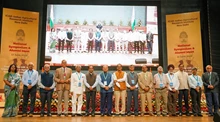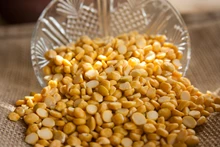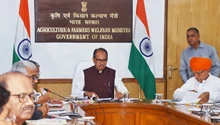
Imagine a world without bees and butterflies. Without these pollinators, fruit, vegetable, and nut production would plummet, causing food shortages and higher prices. This decline threatens our food supply, health, and economy. A recent paper published in the CABI Reviews journal has shed light on the alarming decline of pollinator populations worldwide. Titled 'What are the main reasons for the worldwide decline in pollinator populations?', the research underscores climate change as the most significant threat to these vital species, which include bumblebees, wasps, and butterflies. These pollinators play a critical role in biodiversity conservation, crop yields, and food security.
The study highlights that many of the challenges faced by pollinators stem from human activities. Factors such as habitat loss, pesticide use, pests and pathogens, pollution, and climate change are identified as key drivers behind the decline of pollinator populations.
Impacts on Biodiversity and Food Security
The decline in pollinator populations has far-reaching consequences, affecting approximately 85% of flowering plant species and 87 of the world's leading crops that rely on pollinators for seed production. This decline not only threatens biodiversity conservation but also poses risks to global food security by reducing crop yields.
According to The Intergovernmental Science-Policy Platform on Biodiversity and Ecosystem Services (IPBES), alarming statistics indicate that approximately 16% of vertebrate pollinators and 40% of invertebrate pollinators are at risk of extinction. This highlights the urgent need for concerted efforts to address the factors contributing to pollinator decline.
Dr. Johanne Brunet and Dr. Fabiana Fragoso, the authors of the review, emphasize the urgent need for continued efforts to mitigate the negative impacts on pollinators. Understanding the drivers of pollinator decline is crucial for the development of effective strategies and action plans aimed at conserving these essential species and the ecosystem services they provide.
The researchers stress that climate change exacerbates the challenges faced by pollinators, affecting resource availability, habitat suitability, and overall survival rates. Additionally, human activities such as habitat loss, pesticide use, and pollution further compound these challenges.
Sustainable Agriculture and Integrated Management
To address these challenges, the researchers advocate for the widespread adoption of sustainable practices in agriculture. Integrated pollinator management strategies, coupled with eco-friendly approaches such as reduced pesticide use, are essential for preserving pollinator populations. The study highlights the need to mitigate the adverse effects of managed bees on wild bee populations. Non-lethal collection methods and the development of global baseline pollinator data collection are recommended to address this growing concern.
Moreover, a different study published in PLOS ONE by Sara Souther and colleagues from Northern Arizona University reveals that bee and butterfly populations are declining across major regions of North America due to environmental changes, with significant research gaps hindering conservation efforts.
Using species distribution models, the researchers found declining species richness in western North America over the past century, particularly along the West Coast, California, and the Rocky Mountains, while the eastern regions showed disproportionate increases, likely due to enhanced citizen science efforts. The declines are linked to climate change and anthropogenic land use, highlighting the need for targeted conservation efforts and improved monitoring, especially in poorly studied regions and species.
The researchers call for a holistic approach to pollinator conservation. This approach should encompass the integration of natural habitats and agricultural systems, alongside the management of both wild and managed bee populations. Moreover, concerted efforts to combat climate change are deemed imperative to safeguard pollinators and ensure global food security and stability.
(Source: CABI & PLOS)











